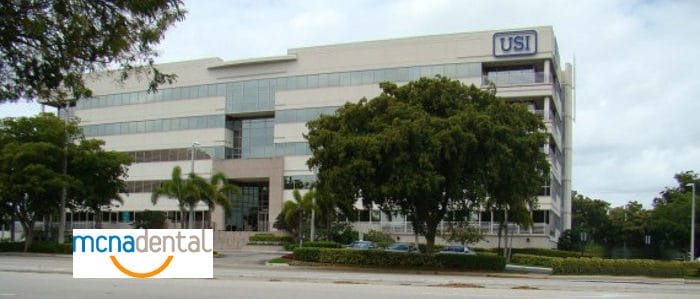A recent audit done by Texas Health and Human Services Office of Inspector General found that dental maintenance organization MCNA had paid out $766,000 in consulting expenses that are unallowable under their Medicaid contract. The expenses were reported in their 2017 Administrative Expenses financial statistical report that MCNA had filed with HHS. OIG also found that MCNA paid out executive/employee bonuses and licensing fees that were not allowed.
The audit report is dated August 30, 2019, but TDMR just received notification of it today in the OIG’s November update email newsletter.
The objective of the audit was “to evaluate the effectiveness of MCNA Texas performance in complying with selected contract requirements, achieving related contract outcomes, and reporting financial and performance results to HHSC.”
It’s scope included “MCNA Texas policies, practices, and activities related to (a) claims processing and (b) financial and performance reporting for the period of September 2016 through February 2018, and other relevant activities through April 2019.”
OIG made the following recommendations:
Medicaid and CHIP Services (MCS), through its contract oversight responsibility, should require MCNA Texas to address and correct its reporting of unallowable, unsupported, or overstated expenses to HHSC. In addition, MCS should strengthen oversight of employee bonus plans. Furthermore, MCS should strengthen contract oversight and financial monitoring to ensure (a) MCNA Texas fees paid to affiliates comply with contractual requirements and (b) affiliate profits are appropriately reported to HHSC. MCS should also reassess affiliate reporting exceptions that were based on 2013 information.
The summary states (full report below):
The 2017 Administrative Expenses financial statistical report (FSR) MCNA Texas submitted to HHSC contained $766,000 in unsupported consulting expenses. In addition, MCNA Texas (a) reported $11,660 in non-executive employee bonuses that exceeded the maximum amount established in its bonus plan, (b) invoked a provision in its bonus plan that enabled MCNA Texas’ Compensation Committee to award bonuses to two executives that exceeded the maximum executive bonus amount documented in other parts of the bonus planby $286,000, and (c) paid bonuses to employees of an affiliate that, during the audit period, were not allowed by contract.
The OIG Audit Division also identified $10,539 in unallowable licensing fees and $21,783 in unallowable travel expenses that MCNA Texas asserts were corrected in a subsequent Administrative Expenses FSR submission.
By reporting $777,660 in unallowable, unsupported, or overstated consulting and non-executive bonus expenses on its Administrative Expenses FSR, MCNA Texas reduced the experience rebate amount owed to HHSC.
MCNA Texas did not request or obtain advance approval for a July 2012 administrative fee increase, or for an unaffiliate sales exception or fair market value exception implemented for its affiliate third-party administrator, as required by the Uniform Managed Care Manual. MCNA Texas notified HHSC of the administrative services fee increase for its affiliate third-party administrator in September 2012. MCNA Texas reported $43.4 million on the Administrative Expenses FSR in 2017, which was based on a $2.55 per member per month (PMPM) administrative service fee.
In November 2014, based on the report of its independent financial audit of MCNA Texas, MCS retroactively approved the affiliate reporting exception for the affiliate organization through August 2013. In December 2014, MCS informed MCNA Texas in an email that the exception was valid for future periods as long as the cost and terms of the relevant agreement remain in effect withoutmaterial changes.
In a January 2019 email to MCNA Texas, MCS reaffirmed the December 2014 guidance to specifically address 2016, 2017, and 2018, stating (a) ongoing reliance on the independent accounting firm’s report for the 18-month period ended August 31, 2013, and (b) acceptance of a verbal assertion from MCNA Texas that there have been no material changes to the Dental Administrative Services Agreement since August 2013.
In its management responses, MCS indicated it will (a) require MCNA Texas to address unsupported and overstated expenses (b) consider developing additional bonus plan criteria to include an assessment of the provision allowing MCO executives to override an established plan, and (c) strengthen contract oversight and financial monitoring activities related to affiliate relationships.
MCNA Texas indicated in a comment letter that it agreed with some of the audit issues but did not agree with others.


